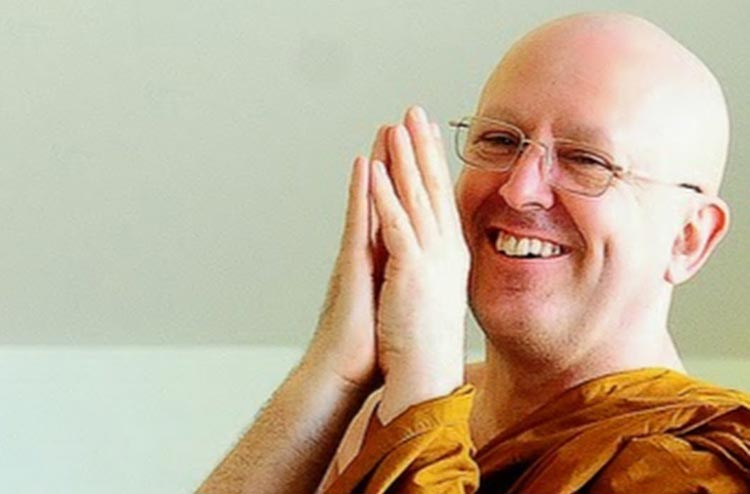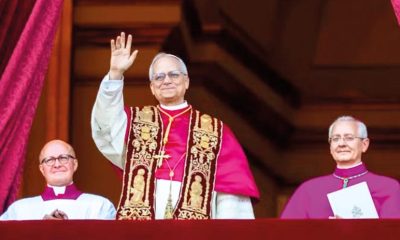Features
Globe-trotting SL artistes…

 The overseas scene seems very encouraging for our artistes and that’s a good sign, indeed.
The overseas scene seems very encouraging for our artistes and that’s a good sign, indeed.
I see them venturing out to various destinations…to keep our folks, now domiciled overseas, entertained.
What’s more, some of our artistes are more out of the island, performing, than in the island…and they are being paid handsomely, as well, I’m told.
Suzi Croner, who has made Switzerland her home, is now in Australia, obliging the Sri Lankans, in Melbourne, in her own inimitable way.
No sooner she arrived in Melbourne, she had to do a private party gig, and a day later, on 7th October, she was featured at The Workers Club, also in Melbourne.

Sohan Weerasinghe: In London again
“I will be in Australia for just three weeks, and within that time I will be doing five gigs,” said Suzi, adding that since this is her first solo trip, Down Under, she is a bit nervous.
“Yes, I’m a bit nervous till I move into action, as lots of my friends, in Australia, have indicated to me that they are coming to see me perform – friends who were my neighbours, friends of the music group Friends, schoolmates, and those who lived down Quarry Road, Dehiwela, where I resided before leaving for Switzerland.”
The big event Suzi is eagerly looking forward to is scheduled for 21st October – ‘Country Night’ with the band No Limit and Esric Jackson.
“This will be something very special for me as I will be doing my own thing, in addition to performing with Esric, and also with No Limit.”
On 15th October, Suzi will be featured at The Bungalow, Walawwa, along with the band Redemption.
Her final gig is scheduled for 22nd October: “It’s a kind of a farewell for me by the HFC Dehiwela crowd, in Melbourne, where, they say, there will be lots of singing, dancing, and plenty of fun.”
Suzi leaves Australia for home (Switzerland) on 24th October.
Another singer who is always on the move is Sohan Weerasinghe.
He was in Canada, last month for the Thomian dance and is now in London for the Trinitian dance, on 14th October.

Suzi Croner: Down Under for five events
While in London, Sohan will also be involved in another event – Lankans Voice Season 2, Second Live Auditions, on 15th October – as a judge and guest performer.
And, in December, it’s a big scene for this singer/entertainer, in Australia, culminating with the 31st night bash, in Melbourne.
The band LunuDehi will be taking wings, to Indonesia, to perform at Hotel Le Meridien Jakarta, on 25th November, and, early next year, they team up with Bathiya and Santhush for an international tour.
Singer Radika Rajavelu is also creating an impact, overseas. She did the Black & White Ball 2023, in London, last month, and will be back in London, in November, for another event – ‘Ramba,’ presented by the Musaeus College Past Pupils Association (UK).
In the meanwhile, after his one month vacation in the UK, Mirage bassist, Benjy Ranabahu is due back home today.
Features
Trump accepts gift (grift) of $400 million flying palace from QATAR to replace “dilapidated” Air Force One

China calls Trump’s bluff on tariffs
At a recent interview with Kristen Walker on NBC’s Meet the Press, President Trump was asked, when the subject of due process was being discussed, “Don’t you, as the President of the United States, need to uphold its constitution?”
Trump, who had taken the oath to uphold the constitution on two presidential inaugurations, said, amazingly, “I don’t know”.
The foreign emoluments clause of Article 1, Section 9, Paragraph 8 of the Constitution states: “No title of Nobility shall be granted by the United States: And no person holding any office of Profit or Trust under them, shall, without the consent of Congress, accept any present, emolument, office, or any title, of any kind whatsoever, from any King, Prince or foreign state”.
Trump is at present on the first overseas trip of his second term, covering Saudi Arabia, the United Arab Emirates and Qatar, nations where he has significant private business interests worth billions of dollars, in Trump Towers, golf courses and cryptocurrency deals; where the necessity of personally maintaining the geopolitical balance of these corrupt business deals, which have more than tripled since his first presidential term, takes precedence over any matters of national interest.
Matters of national interest like the pursuit of a peace process which will bring about the cessation of hostilities between Israel and the terrorist groups of Hamas and the Houthis, ending the ongoing genocide of the Palestinian people in Gaza. A humanitarian crisis surely of more urgency than meetings with sponsors of international corruption and terrorism, or a gift of a palace in the sky.
On the eve of the first overseas trip of his second term, Trump confirmed, once again, his apathy towards the constitution, when he decided to accept a $400 million luxury airplane as a gift from the Qatari royal family. A 13-year-old plane, hitherto used by the Emir of Qatar, touted as a palace in the sky. A palace, though considered not good enough for the Qatar royalty, and gifted basically as a 13-year-old hand-me-down to the President of the United States of America.
The gift is from Sheikh Tamim bin Hamad al Thani, a scion of the same royal family of Qatar Trump denounced in 2017 as the largest funder of terrorism in the middle east. Qatar has been a key supporter of terrorist groups, the Houthis and Hamas, giving them political and financial aid in excess of an estimated $1.8 billion during the past decade.
Trump justified the White House decision to accept the gift of the Jumbo Jet, to be used in place of the United States Air Force One, on the ingenuous argument that the gift was made to the United States Air Force, and not personally to him. Converting the Qatar-owned 747 Jet into a new Air Force One for President Trump would involve, according to aviation experts, stripping the plane to its foundations to ensure that it is security-bug free, and the installation of multiple top-secret security systems, that will cost the American taxpayer over one billion dollars and take years to complete. The installation of these new systems will cost far more than the estimated value of the “gift” of $400 million, and probably will not be completed before the end of Trump’s final, presidential term.
So why should Trump act against the constitution and accept a gift of a plane he probably will not be able use during his final presidential term? Because, according to the terms of this gift, the plane will be presented as an exhibit to the yet-to-be-built Trump Presidential Library at the end of his presidency. It will then be available for his personal use until his long-awaited demise, after which it will revert to the possession of the Trump family, ad infinitum.
Unlike the current Air Force One presidential plane, which will be used by his successor, if and when he leaves the White House.
White House press secretary Karoline Leavitt, who follows her boss in thumbing her nose at the constitution, said that “any gift given by a foreign government is always accepted in full compliance with all applicable laws. President Trump’s administration is committed to full transparency!” Attorney General Pam Bondi agrees, confirming that the Qatar gift is “legally permissible and not a bribe, because President Trump is not giving Qatar anything in return”.
Both Leavitt, Bondi and their boss do not seem to understand the significance of that age-old truism – “There’s nothing called a free lunch”. When a sponsor of terrorism gifts the United States a $400 million airplane, he surely would expect more than a sandwich in return!
However, there are rumblings of complaints from even the usually sycophantic Republican members of the House and Senate that may make Trump’s dream of owning a personal palace in the sky after his presidency most unlikely to result in a happy ending.
Prescription drugs
Trump has also decided to reduce the cost of prescription drugs to the levels of prices in every other developed nation. The idea came to him after a telephone call from London from a seriously overweight and highly neurotic business friend, a billionaire, who complained, “What the hell is going on, Mr. President? I am in London, and I just took my ‘fat-shot drug’, as he called it; and it cost me just $88. I pay $1,300 for the same drug in New York – same box, made at the same plant by the same manufacturer. You have to do something about it, Sir”.
Blessed with the svelte six-foot-three, 210-pounds figure of his dreams, Trump nevertheless shared the pain of his neurotic and obese friend. He decided to immediately address the issue, which he was surprised no one had thought of before. Only Trump pretended to be ignorant of the efforts of Democratic Senators Bernie Sanders, Elizabeth Warren and a host of progressive “woke” political leaders before them, who have been demanding the reform of the nation’s healthcare system, including the lowering of pricing of prescription drugs, for decades.
“I called the CEOs of some of the top drug companies, and asked them why drug prices are so high. They said, ‘Sir, it’s all the costs of research and development on which only American companies spend, and marketing costs; that’s why drugs cost so much in America’.
“So I told them – I suddenly thought of the word “equalization” – I bet no one has thought of this word before – I told them “You have to keep drug prices equal to those paid in other developed countries, get them to share in these research and development costs. I don’t care how you do it, but you have to sell these drugs at the same prices they are sold in other developed nations”.
Last Monday, Trump signed, with much fanfare, an Executive Order, instructing drug manufacturers to cut prices of their drugs from 58% to 90%, within six months. Unfortunately, although Trump is already calling this a fait accompli, a big win for an administration desperate for a win, there is no “or else” to this Executive Order. At the end of six months, nothing would have changed, no penalty levied.
Trump is fully aware that other administrations have made similar efforts to reduce drug prices, that the pharmaceutical companies will never reduce their prices – in six month or six years – as long as their lobbyists maintain control of the Republican politicians, who enjoy the majority in both the House and the Senate. Who, in turn, are controlled by Trump and the MAGA (Make America Great Again) cult.
In six months, Trump would have manufactured hundreds of new lies, addressing new scandals, and the public would have forgotten all about the lie of reduced drug prices. They would continue to pay the same high prices for drugs. And so the tried and proven Trump game of Deny, Distract and Delay will continue, until Americans wake up to the 21st century.
Citizens in other developed nations, who do live in the 21st century, often pay less than a tenth of the prices paid for the exact same drugs in the United States, because their governments manage universal healthcare systems. These governments negotiate the cost of drugs directly with the manufacturers, without having to contend with the enormous profits of the middlemen, the insurance and pharmaceutical companies, and, of course, bribes to crooked politicians.
Trump announces triumph in trade war by repudiating tariffs he had himself imposed on “Liberation Day”
Trump claimed yet another big win after his team led by Scott Bessent, Treasury Secretary, held negotiations with officials of the Chinese government over the weekend in Geneva, Switzerland. Secretary Bessent said. “We have reached agreement on a 90-day pause and substantially moved down tariff levels; both sides will move their reciprocal tariffs down by a whopping 115%”.
Given Trump’s mercurial personality, no one can be sure what new trade policies he will conjure up in 90 days.
The Chinese government has successfully called Trump’s “Liberation Day” bluff when he increased tariffs on Chinese imports to 145%. They have done so by ignoring Trump’s unilateral announcements of increased tariffs, but threatening retaliation to the bitter end. The Chinese do not make empty bluffs. The largest American retailers like Walmart and Target took the defiant attitude of the Chinese most seriously, and warned Trump that they will be facing empty shelves within weeks; smaller retailers were already consulting with bankruptcy lawyers in the full knowledge that they would have to close down their businesses by Christmas, if not sooner. Economists were predicting a 60% possibility of a recession within six months, entirely caused by the declaration of Trump’s trade war on April 2, now generally recognized as the “dumbest economic policy in decades”.
So Trump is now renegotiating tariffs, many at a disadvantage to the US from the rates that existed before Trump’s Liberation Day, when he announced the beginning of “trade independence that would make America rich again”. He is touting the reversal of his tariffs, a return to the status quo, having caused immense losses in the stock markets in the interim, as a tremendous win for his unparalleled excellence in the Art of the Deal.
Which takes us back to the tale of political satirist, Jon Stewart’s dog, who poops all over the carpet, and returns after a few days and eats the poop, leaving an indelible stain and a noisome stink. But he looks proudly at Stewart, as if to say, “Haven’t I been a good dog, the greatest dog you have ever seen?” This pathologically narcissistic, triumphant expression on the face of Jon Stewart’s dog, having partially cleaned up a mess of his own making, is the expression I see on Trump’s face whenever he announces his phony “accomplishments” on TV.
In a mere 100 days, Trump has transformed the economy he inherited from the Biden administration, headlined by The Economist of October 2024 as “The Envy of the World” to an economy of increased prices and rising rates of inflation, teetering on the brink of a recession.
by Kumar de Silva
Features
Ajahn Brahmavamso now in Sri Lanka

 Ajahn Brahmavamso makes us feel he prefers we use this shortened name – Ajahn Brahm, so that’s the name I use in this article. The abbreviated second name is extra meaningful since the five letters in it are the first letters of the major religions of the world – Buddhism, Roman Catholicism and A for Anglican, Hinduism and Muslim. (I hope I am right).
Ajahn Brahmavamso makes us feel he prefers we use this shortened name – Ajahn Brahm, so that’s the name I use in this article. The abbreviated second name is extra meaningful since the five letters in it are the first letters of the major religions of the world – Buddhism, Roman Catholicism and A for Anglican, Hinduism and Muslim. (I hope I am right).
Ajahn Brahm is now in Sri Lanka to give of himself to a crowded agenda planned by the Ajahn Brahm Society of Sri Lanka, given leadership by Ven Metthavihari Thera. This is a short visit but Ajahn Brahm will be going through a rigorous program of helping people mentally and emotionally, which help promotes physical well-being too.
Ajahn Brahm (British) and one of his pupils – Ajahn Brahmali (Norwegian) who reside in Bodhinyana Monastery in Serpentine, Perth, have been on several teaching visits to our country. The monastery was built by Ajahn Jagaro and Ajahn Brahm after they left Thailand and decided to live in Australia, invited to do so by the Buddhist Society of Western Australia. The monastery was completed in 1983 and named Bodhinyana in remembrance and to honour Ajahn Cha whose monastic title was Phra Bodhinana Thera.
An aside is that all building of extensions and renovations to the monastery are undertaken by the resident monks themselves. Thus an anecdote related by Ajahn Brahm is relevant here. He was all dusty and dirty from building when a well dressed Lankan woman came to the monastery and asked him whether she could meet Ajahn Brahm. He directed her to a waiting room and said that Ajahn Brahm would be with her in 15 minutes. Bathed and in a fresh set of robes he came and spoke with her. At the end of the interview she conspiratorially asked him as Head Abbot to control the monks better as she met a very untidy, very dirty monk when she entered the monastery. Bad image, she said.
Ajahn Brahm, a Theoretical Physics graduate from Cambridge University after one year of teaching went to Thailand to meditate and was a forest monk with teacher Ajahn Cha, considered the best Theravada meditation teacher in the last century. Ajahn Brahmali, after earning degrees in engineering and finance, left Norway in his 20s for Western Australia to be ordained a Buddhist monk under Ajahn Brahm. They both travel globally, spreading the Dhamma and conducting meditation sessions.
The crowded Agenda Public addresses:
The main addresses will be today, Sunday May 18, 2025, from 7:00 am to 11:00 am, at the BMICH Main and Sirimavo Halls; Ajahn Brahm moving from one hall to another so the entire audience sees him. Each hall will be equipped with audio and video presentation. The first address: Copying with life transitions and emotional challenges, is designed for all, age notwithstanding, offering wisdom and practical insights for a fulfilling life. The last time he spoke to the public 5000 plus people were comfortably accommodated at the BMICH.
The second address: The art of meaningful life, is a special session for teens and young adults, addressing key challenges faced by them in today’s fast-paced, competitive world. This will be translated from English to Sinhala by Ven Damita Thera.
Exclusive Forums
On Saturday, May 17, 2025, two exclusive forums were held at the BMICH Committee Room, Jasmine Hall. The first session had eighty invited Sri Lankan academics and scientists engaged in research on meditation at the Centre for Meditation Research of the University of Colombo. This was followed in the evening by an interactive session for a hundred invited senior professionals and business leaders, featuring a talk on leadership followed by a Q&A session.
Meditation Retreat
The most significant item on Ajahn Brahm’s programme will be a week-long meditation retreat at the Barberyn Waves Ayurveda Resort in Weligama from 18 to 24 May. Focus is on members of the Sangha. A limited number of experienced lay meditators will also have the opportunity to participate. And then Ven Ajahn Brahm will leave this country which I have heard him refer to in his videoed tapes as a country that warmly welcomes him.
Basic suggestions for meditation
Almost every night I listen to a video tape with either Ajahn Brahm or Ajahn Brahmali speaking about various aspects of the Dhamma; suttas, and practical ways to greater spirituality and of course making meditation less arduous and readily attainable. Ven Mettavihari sent me a text of a talk by Ajahn Brahm some time ago. I pick up some salient facts/hints/suggestions and include them in this article. One thing insisted on is that if one is attempting meditation to better one’s living and success in life, or to enhance concentration and so one’s job, or to avoid depression or raise one’s spirits. it is a sharp NO from both bhikkhus. Meditation should be undertaken as an essential adjunct in following the Path expounded by the Buddha to end samsaric existences.
Strongly advocated is mindfulness. “At the beginning that awareness of your body is just very superficial. When it gets strong enough by itself, you actually start to perceive tensions and tight spots in your body. You learn to relax those spots. It’s like looking at your speed gauge when driving. This gauge of mindfulness will indicate to you whether you are tensing more or getting relaxed. With the feedback given, you relax more and more until you feel really relaxed. You then start to experience what I call delight in relaxation.” And added is one of Ajahn Brahm’s typical examples –tongue in cheek perhaps, but sharply apt. “People spend thousands of dollars going to Bali to sit on a chair near the ocean and get relaxed. But you achieve this with no hassle of airports, flight delays, losing baggage and great spending – in meditation.”
“Experiencing delight the mind wants more, so you relax to the max until your body feels continuous delight. The duration of your delight varies, depending on situation, time of year, day, your well-being. So no fixed rules; you adapt. That’s what mindfulness does; gives you feedback and you relax.”
He then deals with obstacles like an unfortunate incident that morning, or someone being nasty to you. “You find it difficult to get the ache out of your body, just saying ‘get out’ will not help. You have to deal with this, tend it, care for your mind and with kindness, induce relaxation. The body will relax, the mind will follow. Awareness is not enough, we need to add these other wonderful qualities: compassion, kindness, softness.
“When you are kind to something, you find there is a softening. If it is a memory of the past, kindness will soften your mind and the hurt or pain or resentment will vanish. In the same way you may be worried about the future. Maybe your biopsy result will be given you the next day or your kid is facing a tough exam which affects his future. You cannot force the thought out of your mind nor not take notice. Accept it and like an ache in the body, loosen it. Be kind to your mind dwelling on the future, soften it and the pain too will disappear.”
We who try to meditate know how thoughts come to the mind and upset our relaxation and one-pointedness. Ajahn Brahm advices getting away from past and present by relaxing and dwelling in the present moment. “As I say, be a friend to the present moment. Don’t be an owner, controller, boss. Don’t be a mind control freak. Be a friend, have a relationship of friendliness with your mental world, you’ve lived with it your whole life.”
He then touches on the Buddhist concept of rebirth and suggests we have gone through many lives with this same mind. So we are stuck with our minds. Thus we’d better learn to be kind to it, no escape from the mind. This was a concept that came to me worded simply by Ajahn Brahmali who says when we die we take our minds with us to the next birth. We’ve been told we take the chuthi sitha, which Sampath the three wheeler driver who spins me around explains as – chuthi means leaves. Using the term ‘mind departing’ explains rebirth in a friendlier manner.
Ajahn Brahm is considerate too about our human frailties. He advises: “If you want to adjust your body, wiggle your bottom, have a scratch, a nose blow, please do it out of respect for your bodily peace. Once that coarse relaxation of the body through bodily movement is complete, now relax the body even further. If you feel any tension or irritation, be fully aware of it. Do not try to get rid of it. Like a barking dog if you try to chase it, it will come at you and bite! By watching the dial of mindfulness, you’ll find it is kindness, love, acceptance, embracing, caring which relaxes your body deeper and deeper. Just as a mother comforts her child when it is sick and takes away the pain, be aware of the delight of relaxation.”
“All the problems of the past or the future, be kind to them, soften them. See if you can do the same with your mental world, relaxing it until all that is left is this moment called now. Look at it as your best friend. Don’t try to hold this moment with force, don’t use will power, use kindness.”
I am sure you reader will agree it all sounds very easy while meditation is not easy. The crux of Ajahn Brahm’s advice is to make it as easy and pleasurable as possible and the key is relaxation of both body and mind. Also metta (loving kindness) and karuna (compassion). All is not suffering. Meditation brings joy; finally release from unsatisfactoriness and end of samsaric rebirths.
So far, in Sri Lanka at least, Buddhists have been concentrating more on rites and rituals; worship in temples and relics. Enough of this ‘old Buddhism.’ Here in the preaching of Ajahn Brahm and our own monks, is what we really need to do: follow the Buddha’s teaching and get on the Path he showed all humanity, which leads ultimately to deliverance from suffering.
Features
The Strategic Imperative:Why Sri Lanka Could Transform Indo-Pacific Security Through Space

As I scan the strategic horizon of the Indo-Pacific region, I see both unprecedented challenges and extraordinary opportunities. Maritime threats multiply while space technology advances at breathtaking speed. Standing at this intersection of security concerns and technological possibility, I believe policy makers have a unique window to reshape regional dynamics through a bold partnership between the United States and Sri Lanka—one centered on space capabilities and maritime domain awareness.
My research has convinced me that Sri Lanka, often called the “Pearl of the Indian Ocean,” represents far more than a picturesque island nation. Its geographic position—sitting precisely where critical sea lanes converge—makes it an invaluable strategic fulcrum. Nearly half of global container traffic passes through these waters, creating an imperative to secure them against threats ranging from piracy to illegal fishing.
What makes this moment particularly significant is the convergence of Sri Lanka’s location with revolutionary advances in commercial space technology. Companies like SpaceX have dramatically reduced the cost of space access while increasing capabilities. This democratization of space presents a historic opportunity to establish Sri Lanka as both a maritime security hub and potentially a spaceport ideally positioned for reaching equatorial orbits.
Why Sri Lanka?
The question is not why Sri Lanka, but why we haven’t pursued this obvious partnership sooner. The island’s position between six and 10 degrees north of the equator gives it natural advantages for space launches that few other locations can match. Rockets launched near the equator benefit from Earth’s rotational speed, reducing fuel requirements significantly. Sri Lanka’s eastern coastline offers direct access to open ocean, providing essential safety corridors for launches targeting both equatorial and polar orbits.
I am particularly struck by how Sri Lanka’s deep-water ports, stable climate through much of the year, and existing telecommunications infrastructure create a foundation upon which we could build truly transformative capabilities.
Beyond Security: Economic Renaissance
Though my core expertise is in security, I cannot ignore the profound economic shift this partnership could ignite in Sri Lanka. International technical collaboration yields enduring dividends. I see the potential for thousands of high-skilled jobs in aerospace engineering, computer science, and advanced technical trades. A spaceport would serve as a magnet for global aerospace firms and research institutions, positioning Sri Lanka squarely within the orbit of the space economy.
Such a facility could fund development across the island – a model I’ve seen succeed elsewhere. As a child, I was struck by the Victoria Dam project, completed in 1985 with British support. Nearly four decades later, it still powers homes and waters the highlands. The lesson is simple: well-executed infrastructure endures.
Sri Lanka could never have built the Victoria Dam alone. Most of the funding came as a British grant. The same principle applies here. I propose the United States Space Force and SpaceX provide primary funding and technical expertise. In return, Sri Lanka offers strategic access to the spaceport—a fair trade, and one with lasting mutual benefit.
In addition to the USA, Sri Lanka could seek partnerships with countries such as Japan, India, Israel, South Korea, Australia, and New Zealand – nations located farther from the equator. These countries might be interested in investing in the project in return for usage rights to a strategically located equatorial launch site. Through such international collaboration, Sri Lanka could realize this ambitious project while ensuring shared benefits and long-term partnerships.
A Framework for Implementation
Based on my analysis, I propose a trilateral framework involving the United States Space Force, commercial partners like SpaceX, and Sri Lanka’s government and defense establishment. This would begin with the formation of a Joint Coordination Committee comprising representatives from all stakeholders to provide strategic oversight.
The initial phase would focus on deploying satellite-based maritime surveillance systems to enhance Sri Lanka’s capacity to monitor its territorial waters and exclusive economic zone. Specialized training would ensure Sri Lankan forces can effectively utilize these advanced capabilities while joint exercises with the US Navy and Coast Guard would refine surveillance techniques.
Simultaneously, we should conduct comprehensive feasibility studies for the spaceport concept, including site selection, environmental impact assessments, and infrastructure requirements. The phased approach I’ve outlined would allow for careful planning and sustainable development over a five-year horizon.
Environmental Protection and Disaster Response
Having witnessed firsthand the devastating impact of the 2004 tsunami on Sri Lanka’s coastal communities, I’m particularly committed to the environmental monitoring and disaster management components of this proposal. Space-based sensors can track ocean health, monitor climate patterns, and enable early warning systems for natural disasters.
These capabilities would not only save lives but also support Sri Lanka’s blue economy aspirations by enabling sustainable fisheries management and facilitating marine renewable energy projects. The space-based tools we deploy must serve both security objectives and environmental stewardship.
Addressing the Critics
I anticipate skepticism about this proposal, particularly concerns regarding militarization and sovereignty. Let me address these directly: this partnership is fundamentally about preserving independence and enhancing capabilities, not imposing external control.
The reality is that power abhors a vacuum. If independent nations do not establish a robust presence in space and maritime domains, these realms will inevitably fall under the influence of actors who may not share our commitment to regional prosperity and sovereignty. The question is not whether these domains will be used for strategic advantage, but whether they will be governed by principles of mutual benefit.
A Call for Action
The window for establishing this partnership is not indefinite. As great power competition intensifies across the Indo-Pacific, the opportunity to shape regional security architecture through collaborative frameworks may diminish. The time for action is now.
I believe this initiative represents more than just a series of technical collaborations—it embodies a vision for how emerging space capabilities can be leveraged to advance both security and prosperity. By positioning Sri Lanka as a crucial node in the Indo-Pacific space infrastructure network, we create a model for sustainable development that enhances regional stability while respecting national sovereignty.
I am convinced that the convergence of Sri Lanka’s strategic position with American space capabilities offers an unparalleled opportunity to transform regional security architecture. For both our nations, this partnership represents not just strategic foresight, but an imperative for securing our shared future in the Indo-Pacific century.
Sri Lanka has long been a maritime nation, but to remain relevant in the 21st century, it must now turn its gaze to space as the next frontier. As global interest in space mining, colonization, and defense grows, the very concept of “development” is undergoing a transformation.
By acting decisively, Sri Lanka can establish itself as a leading space hub, securing not only economic prosperity but also technological sovereignty and regional influence.
Space is the future. Sri Lanka must seize its rightful place in it. However, I firmly believe that any agreement Sri Lanka enters into with a foreign nation must safeguard the island’s sovereignty above all else. Sri Lanka cannot repeat the mistakes of the past. Sri Lanka should never again sign lopsided deals resembling the 99-year lease signed for such as the Hambantota Port agreement that compromise long-term control for short-term relief.
This is a condensed version of an academic paper she presented at the 2025 Colombo Air Symposium, which is slated to be published later by the Sri Lanka Air Force.
About the writer
Dr. Achala Gunasekara-Rockwell
serves as the Assistant Editor-in-Chief for the Journal of Indo-Pacific Affairs and Contemporary International Security Affairs. Additionally, she is an Adjunct Assistant Professor of Cultural Studies/Anthropology of Languages and Religions at both the University of Alabama at Birmingham and Troy University.
Dr. Gunasekara-Rockwell works closely with senior American military officers, educating them on South Asia-related issues. As part of their academic program, she accompanies these officers on annual visits to Sri Lanka to enhance their understanding of the region.
She was an American Field Service Scholar to Japan during her 11th grade at Girl’s High School, Kandy and fluent in Japanese. Dr. Gunasekara-Rockwell is also a proud mother of three children. She is the youngest daughter of Dr. Sudath and Mrs. Ira Gunasekera of Kandy.
On a personal note
, my connection to visionary projects like this goes back to my childhood. My father, Dr. Sudath Gunasekara, worked on the Victoria Project in the 1980s. As a young girl, I vividly remember the trips he took us on to witness the project’s progress.
During my high school years, I experienced the loss of my beloved pet dog, Nico. I wrote a poem in his memory, which was later published in a newspaper. To my surprise, Dr. Arthur C. Clarke, the renowned space enthusiast, read the poem and shared that he had faced similar losses with his own pets. He invited me to visit him, and from that meeting, a long-lasting friendship was born. I remained in touch with Dr. Clarke for many years, and his encouragement and insights continued to inspire me. It’s as if two meaningful experiences from my childhood are coming together.
By Dr. Achala Gunasekara-Rockwell
-

 News7 days ago
News7 days agoDestined to be pope:Brother says Leo XIV always wanted to be a priest
-

 Features6 days ago
Features6 days agoChampioning Geckos, Conservation, and Cross-Disciplinary Research in Sri Lanka
-

 Midweek Review4 days ago
Midweek Review4 days agoBronze statue for P’karan, NPP defeat in the North and 16th anniversary of triumph over terrorism
-

 News2 days ago
News2 days agoChikungunya spreading rapidly in Colombo and suburbs
-

 News5 days ago
News5 days agoExpert: Mismanagement of CEB hydro resources increases costly oil-powered electricity generation
-

 News4 days ago
News4 days agoFrench Navy Ship ‘BEAUTEMPS BEAUPRE’ sets sail from Colombo
-

 Features7 days ago
Features7 days agoPope Leo XIV – The Second Pope from the Americas
-

 Business1 day ago
Business1 day agoHameedia launches ‘We Create’ – Sri Lanka’s first-ever online tailoring platform





















